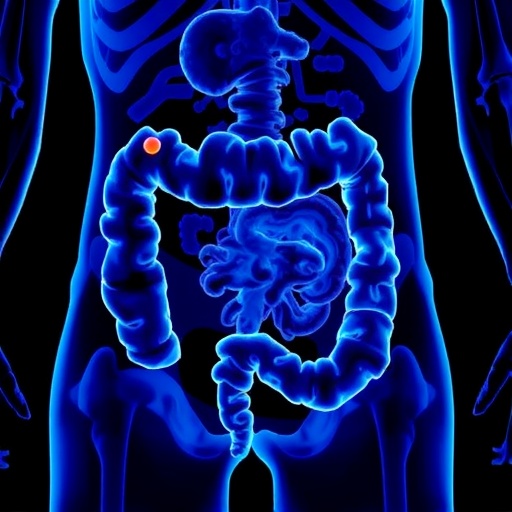A Paradigm Shift in Cancer Origins: Revealing the Polyclonal Nature of Premalignant Colorectal Lesions
Cancer research has long been dominated by the model that tumors arise from a single mutant cell which clonally expands to form a malignant mass. This classic monoclonal theory posits that one rogue cell acquires a sequence of genetic alterations conferring a proliferative advantage, dominating the tumor landscape through successive clonal sweeps. However, emerging research is radically challenging this notion, particularly in colorectal cancer – one of the most common and deadly cancers worldwide.
A recent groundbreaking study from Van Egeren, Schenck, Khan, and colleagues published in Nature (2025) skeptically reexamines the traditional beliefs about tumor initiation. Their approach uniquely focused on the earliest cellular events in colorectal tumorigenesis, analyzing an unprecedented array of 123 tissue samples from six individuals with familial adenomatous polyposis (FAP), a hereditary syndrome characterized by a germline mutation in the APC gene and predisposition to multiple premalignant colorectal polyps. These samples spanned the spectrum from normal mucosa through benign and dysplastic polyps to full adenocarcinomas.
By employing whole-genome sequencing (WGS) and whole-exome sequencing (WES), the team generated a comprehensive mutational landscape across several stages of lesion evolution. Strikingly, their data revealed that a significant proportion of premalignant polyps, specifically 40% of benign lesions and 28% of dysplastic polyps, were not derived from a single ancestral clone but rather harbor multiple genetically distinct lineages. This suggests that colorectal tumors frequently possess a polyclonal origin, shaped by the early divergence of several mutant clones.
The implications of this are profound, as detecting such polyclonal origins in patients is notoriously difficult. Early-stage lesions often undergo ‘clonal sweeps,’ whereby one dominant clone overgrows others, obscuring the tumor’s initial cellular diversity. By studying FAP patients who develop numerous polyps from a young age, the researchers were able to circumvent this problem and capture early neoplastic heterogeneity before a predominant clone could eradicate competing lineages.
Further strengthening their conclusions, the authors performed WGS at single crypt resolution within polyps—crypts are the fundamental glandular units of colon tissue. They discovered strikingly little overlap in mutations among crypts within the same lesion, providing granular evidence that distinct lineages co-exist even within a single polyp microenvironment. This crypt-level diversity reinforces the idea that tumor initiation involves multiple independent clones rather than a singular mutated progenitor.
One particularly compelling find was the coexistence of different APC mutations within separate lineages of the same polyp. APC is a critical tumor suppressor whose loss is typically an early and pivotal event in colorectal tumorigenesis. The presence of multiple distinct APC hits within a single lesion not only confirms polyclonality but challenges prevailing assumptions about the linear and singular path to malignancy driven by one inactivating event.
These insights prompt a reassessment of the biological underpinnings of early cancer evolution. If tumorigenesis often starts from multiple mutant clones emerging in parallel rather than a single cell, the processes governing tumor initiation are evidently more complex than previously appreciated. This complexity suggests that cell-intrinsic factors such as somatic mutations are necessary but insufficient alone to drive tumor formation. The tissue microenvironment, interclonal interactions, and broader tissue architecture likely play vital roles in fostering or restraining neoplastic outgrowth.
From a clinical perspective, recognizing the polyclonal origins of premalignant lesions could transform early detection and therapeutic strategies. It suggests that premalignant lesions harboring multiple independent clones may display different trajectories, treatment responses, and risks of progression than monoclonal lesions. Furthermore, the presence of multiple competing clones could open avenues to exploit evolutionary dynamics as a therapeutic angle—intervene before dominance consolidates, and the tumor becomes more genetically uniform and treatment-resistant.
This research also dovetails with recent efforts to map spatial and temporal heterogeneity in tumors at single-cell resolution. Tumor ecosystems are now understood as complex, evolving communities rather than homogenous cell masses. The work from Van Egeren et al. extends this concept to the very earliest stages of cancer development, showing that the interplay among diverse clones is central from initiation onward.
The study’s use of familial adenomatous polyposis patients provides a powerful model system. Because these individuals possess a germline mutation that predisposes them to numerous early lesions, researchers can capture snapshots of tumorigenesis as it unfolds. This unique access to premalignant diversity is rarely possible in sporadic cancer cases presenting at later stages.
Overall, this paradigm-breaking work demands that oncologists and cancer biologists reconsider foundational assumptions about tumor initiation. The evidence marshaled reveals that colorectal cancer development may be a polyclonal affair, a dynamic interplay of multiple evolving mutants whose trajectories are shaped by interactions with each other and the surrounding tissue milieu. Moving beyond monoclonality towards this complex, ecological view opens tantalizing possibilities for early intervention, prevention, and more nuanced therapeutic approaches in colorectal and possibly other cancers.
As the field embraces ever-more refined sequencing technologies and spatial genomics, dissecting the clonal architecture of early neoplasms will become increasingly feasible and routine. This will not only deepen our biological understanding but potentially enable personalized treatments designed to intercept tumors before they gain lethal dominance. While much remains to be unraveled, this study shines a spotlight on the importance of polyclonal diversity in cancer’s earliest moments—and heralds a transformative shift in cancer biology.
Subject of Research: Polyclonal origins and clonal heterogeneity in premalignant colorectal lesions
Article Title: Polyclonal origins of human premalignant colorectal lesions
Article References:
Van Egeren, D., Schenck, R.O., Khan, A. et al. Polyclonal origins of human premalignant colorectal lesions. Nature (2025). https://doi.org/10.1038/s41586-025-09930-y
Image Credits: AI Generated




